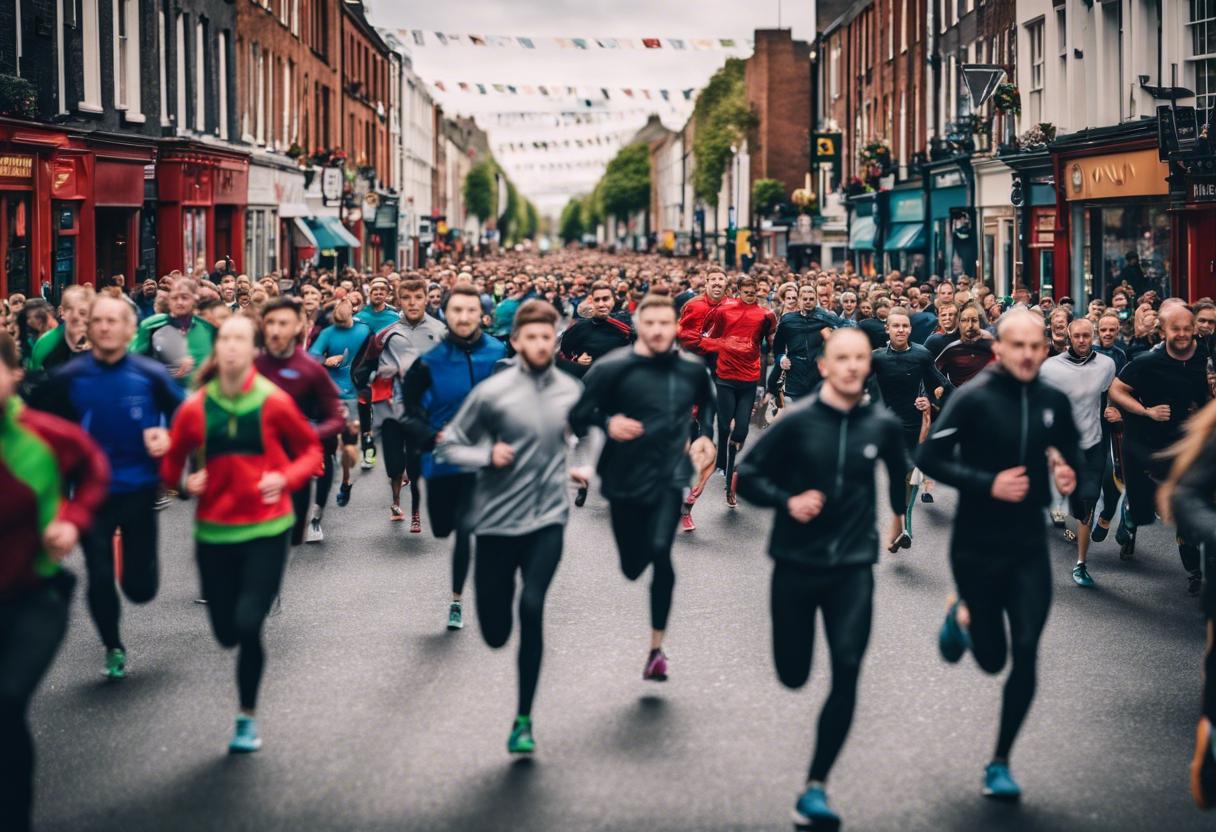The Dublin Marathon has seen an encouraging increase in race-day entries this year, reversing a formerly concerning downward trend. On Sunday, the marathon had a capacity of 22,500 participants, of which approximately 18,000 (18,091) commenced at the starting line on Leeson Street. Official finishers totalled at 17,719, narrowly missing the event record.
In comparison, the previous year also had a cap of 22,500, yet saw just 16,540 athletes at the start line and 16,347 official completions. This suggest around 6,000 registered entries did not get utilised despite all entrants paying the €110 entrance fee alongside a €5.50 handling fee.
Major city marathons regularly anticipate around a 20% dropout rate on the total number of entries. These dropouts often occur due to health issues, fear, doubt, reconsiderations and other unforeseen circumstances that can present themselves in the run up to the event. Nevertheless, the fall of 6,000 runners last year was a significant dwindling, approximating a 25% decrease on the original number of Dublin’s entries.
This underwhelming figure also significantly reduced from the 2019 result, where the cap was set at 22,500 and saw a record number of 17,724 official completions reached.
To encourage more competitors, for this year’s marathon, a new transfer window was opened from the 24th of July to the 26th of August. This presented a slightly later opportunity for runners compared to the previous year. With respect to the marathon date, this window was the latest possible for organisers.
The Dublin Marathon spokesperson commented, “We find satisfaction in raising our race-day entries above 18,000. The 20% dropout figure is now back in line with most other major city marathons. We’re already exploring varied ways to further reduce this for our 2025 and 2026 events.”
Among the 17,719 finishers on Sunday, 12,144 were male, 5,560 were female, and 15 individuals identified as non-binary.
Jim Aughney, the race director for the Dublin Marathon, expressed bafflement regarding the significant 25% reduction in race-day participants last year. Prior to the event being consecutively postponed in 2020 and 2021 due to Covid, he had anticipated around 19,000 participants out of the 22,500 entries from 2019, with about a no-show of approximately 3,500. The real consequences of the double postponement became evident in the 2022 marathon event. Of the initially projected 25,000 tickets being sold out, only 14,773 were recorded as official race finishers.
However, the marathon on Sunday resulted in a few record-breaking moments. Hiko Tonosa, who ran for Dundrum South Dublin, took third place overall – completing the marathon in 2:09:42, the fastest time ever logged by an Irish runner. Although he trailed less than a minute behind overall winner Moses Kemei from Kenya, he beat Stephen Scullion’s 2020 London marathon Irish record of 2:09:49. While John Treacy clocked in at 2:09:15 in the 1988 Boston Marathon, it wasn’t recognised as a record due to the net downhill gradient of the Boston course.
The women’s race also saw a record-breaking performance, with Asmirach Nega from Ethiopia winning in 2:24:13 – a new Dublin Marathon course record.
Looking forward to the 2025 event, the entry process will start this week with a preferential early entry, ensuring a place for all those who entered the 2024 race, irrespective of if they participated or not. The same preferential early entry duration is also open to women participants of the 2024 Dublin Half Marathon, intended to promote and encourage increased female participation in the full marathon. Reserved spots for Athletics Ireland club members will continue as the race also serves as the national marathon championships since 2003. Following the receipt of preferential entries, the lottery system will open for applications.
The anticipated drop-out rate for most marathons is roughly 20 per cent, though some events attain more successful completion rates. For instance, the New York Marathon in 2018 had the most runners crossing the finish line compared to other races. A staggering 52,121 out of 52,812 participants managed to finish the race, resulting in a remarkable completion rate of 99.4 per cent.

